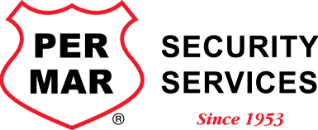Fire Safety Tips in the Kitchen
October 12, 2018
You now know that more fires happen at home than anywhere else, but did you know that kitchen fires are one of the leading causes of house fires?
The primary reason is simple – unattended cooking.
With the holiday months nearing, you should also know that the top days for cooking-related fires are Thanksgiving, Christmas Day and Christmas Eve, respectively. Ranges and cooktops are the biggest culprits and if you are frying anything, you’ve significantly increased your odds of a kitchen fire. Follow the safety tips below to keep from burning down the house.
General Cooking Safety
- Always stay near the food while cooking, especially when frying, grilling, boiling, or broiling.
- Avoid cooking while intoxicated, medicated or overly tired.
- Create kid- and pet-free zones in the kitchen of at least 3 feet from your cooking appliances and hot food (that applies to outdoor kitchens and grilling stations, too).
- Set a timer even while present.
- Do not disable smoke alarms while cooking.
- Never use your oven as a way to heat your home.
- Check and double check that everything is turned off once done cooking.
- Unplug your smaller cooking appliances – toasters, toaster ovens, etc. – while not in use.
- Use and test GFCI receptacle outlets to prevent shock and electrocution (and as required by the National Electrical Code® or NEC®).
Ranges & Cooktops
It’s been reported that 66% of home cooking fires start with the ignition of food or other cooking materials and debris. Range and cooktop tips include:
- Keep all flammable items – towels, paper towels, wooden spoons, packaging, paper plates – away from the stovetop or other active heat sources.
- Clean your oven and stovetop so that they are free from grease and dust for the next use.
- Be conscientious when igniting your gas stove; regularly check for leaks.
Fried Food
As mentioned earlier, deep frying deepens the risk of a cooking fire. Safety tips for preparing fried food include:
- Consider using an air fryer instead of a deep fryer.
- Turkey fryers are especially cautioned against by the National Fire Protection Association (NFPA).
- If you do use a deep fryer:
- Stay in the kitchen and keep an eye on your fried food
- Bring oil to frying temperature slowly
- Place food carefully to avoid splatters
- Watch for wisps of smoke or the scent of your oil (both indicating the oil is too hot); if this happens, turn off the heat and carefully remove the pan from the burner
Microwave Ovens
Fryers and stovetops aren’t the only cooking fire culprits, microwaves have done their fair share of damage. Tips pulled directly from the NFPA include:
- Purchase a microwave oven that has the label of an independent testing laboratory.
- Complete and return the product registration card so that the manufacturer can reach you if there is a recall on the product.
- Plug the microwave oven directly into the wall outlet — never use an extension cord.
- Avoid heating aluminum foil or metal in the microwave.
- Supervise children who are old enough to use the microwave.
Grills
Whether you have an outdoor kitchen or a stand-alone grill, the NFPA recommends you treat it with the same precautions as you would your indoor kitchen. Additional grill fire safety tips include:
- Restrict use of your propane and charcoal grills to the outdoors, away from everything – choose an open space in all directions (don’t forget to look up for tree branches, eaves, etc.).
- Clean your grill in between uses both on the cooking surfaces and in any fat trays below.
- Test for gas leaks and loose connections (here’s how).
What To Do When a Cooking Fire Starts
According to the NFPA, 55% of reported non-fatal home cooking fire injuries occurred when the victims tried to fight the fire themselves. Follow these tips for what to do when a fire starts in your kitchen:
- For small grease fires (and only if you are able) slide a lid over the pan that caught fire, turn off the burner, and do not remove the cover.
- Do NOT use water of a fire extinguisher for a grease fire.
- For oven fires, turn off the heat and leave the oven door closed.
- Get out of the house (and close any doors behind you to contain the flames).
Call 9-1-1 the moment you are outside and safe. And, while having a monitored smoke detectors means an emergency call will be placed on your behalf, two calls are better than one! Once out of the house, don’t forget to use your family’s fire escape plan and meeting place so that everyone can be accounted for.
For more information on monitored smoke detectors and fire alarms, contact a Per Mar professional. We can’t emphasize enough how having a team of trained monitoring center representatives looking out for the people you love most 24/7/365 can make a world of difference!
 Careers
Careers Customer Support
Customer Support (800) 473-7627
(800) 473-7627 Contact Us
Contact Us Locations
Locations